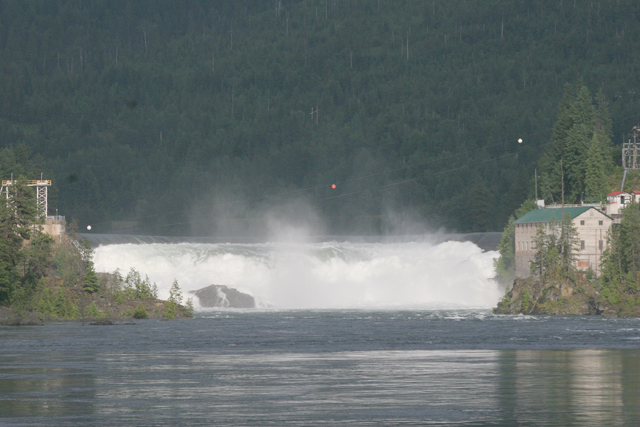El Niño year leads to faster than usual snowpack melt
Warmer than average temperatures across the province are causing the snowpack to melt faster than usual, even in areas like the West Kootenays that received large amounts of snow during the winter.
The extremely warm weather in April has led to an accelerated melt for the snowpack in the region, and combined with below normal levels of precipitation in Southern BC for this time of year has some worried about potential fires upcoming in the summer.
“April weather was generally warm and dry, dominated by stable high pressure, and included an extended period of record heat in the third week of the month,” said the British Columbia River Forecast Centre (BCRFC) in a summary of the May 1st snow survey.
“Temperatures continued to be well above normal through the month of April with daily temperatures being 2-4˚C above normal across most of the province.
“Precipitation in Southern BC was well below normal for April, with precipitation amounts typically in the 20-50 percent of normal range.”
The unseasonably hot weeks in April led to swift and substantial melt of the provincial snow pack. According to the BCRFC, snow basin indices ranged from 12 to 100 percent of normal, with a provincial average of 53 percent. On top of this, the provincial average saw a decline of 38 percent from the April 1st value of 91 percent.
The provincial average basin index set a record for the lowest measured since 1980, and is 13 percent below the previous low of 66 percent.
The BCRFC report said according to the survey, “of the 183 snow survey measurements made for the May 1st period, 33 stations, or 18 percent, observed new record lows, with many locations having 40 to 50 years of record. Low and mid-elevation snow is largely gone for all areas of the province with snow remaining only at high elevation.”
Ron Lakeman, Fire Weather Behaviour Specialist at the Southeast Fire Centre, said that the extra warm spring and high melt levels are typical of an El Niño year, and while it is too early to tell whether or not this pattern will continue, we might be in for fiery summer.
“(Snow) has melted, or is melting, at an accelerated rate,” Lakeman explained.
“We’ve had some exceedingly warm weather over the last five or six weeks, and as a result the snowpack is melting quickly. If this pattern were to continue for the next month or so then it would initiate a rather early start to fire season this year.”
Lakeman explained that a combination of the El Niño weather system and the Pacific Decadal Oscillation (PDO) is behind these issues, but that they are fairly typical for this time of year.
“El Niño typically have more influence over our local weather in late winter and spring, and the main influence is always milder than normal temps. It’s almost a certainty that spring comes early in an El Niño year and some of that influence can continue into the spring. It does make sense that we’ve had the warm temps,” Lakeman said.
Fortunately, the PDO doesn’t look as strong as it did last year, and the El Niño effects are expected to diminish over the next month or two.
However, Lakeman stressed that at this point in the year it is too early to tell what kind of summer temperatures and precipitation levels we’re in for.
With the rapid level of melt also comes the annual freshet, which affects companies like FortisBC, who maintain generate hydroelectric power at four dams on the Kootenay River.
While this year’s freshet might be coming a little earlier than expected, the levels are not of notable concern to FortisBC at this point in time.
“We’re really not concerned at this time, even though we’re expecting this year’s freshet to be maybe about two weeks early (May 31st),” Nicole Bogdanovic, Corporate Communications Advisor for FortisBC told The Nelson Daily Friday.
“At this point we’re not concerned about that and it’s pretty average overall.”
“That being said, we do watch the freshet situation really closely,” Bogdanovic adds.
“I can speak to our system and that we’re not concerned at this time and we’re seeing the freshet as overall water levels are pretty average this year compared to the previous year.”


























Comments